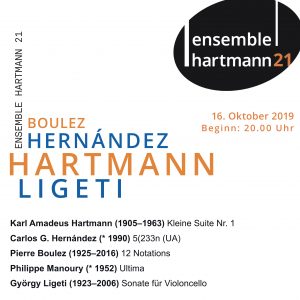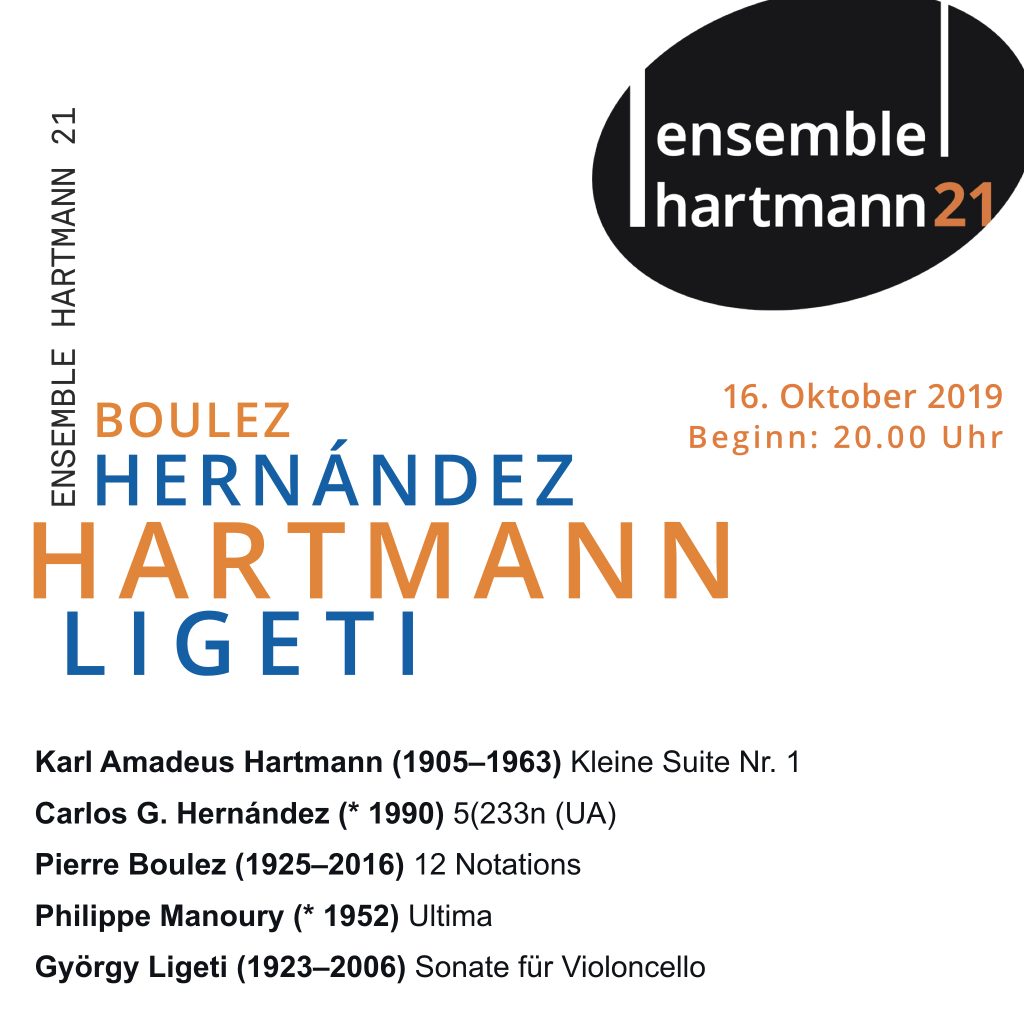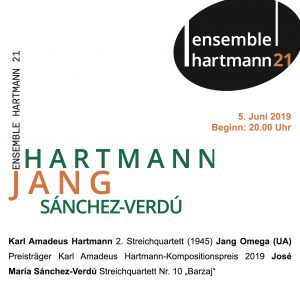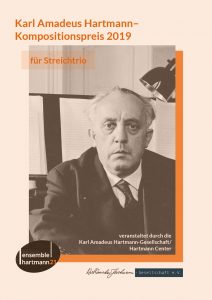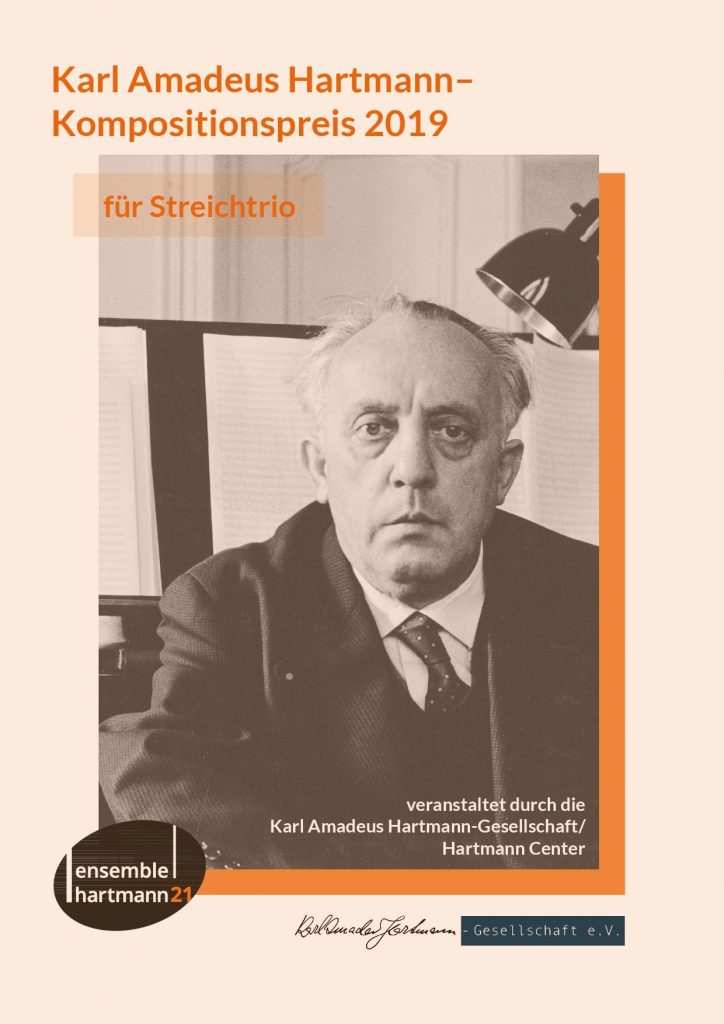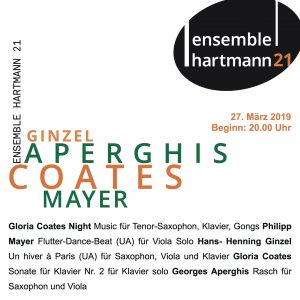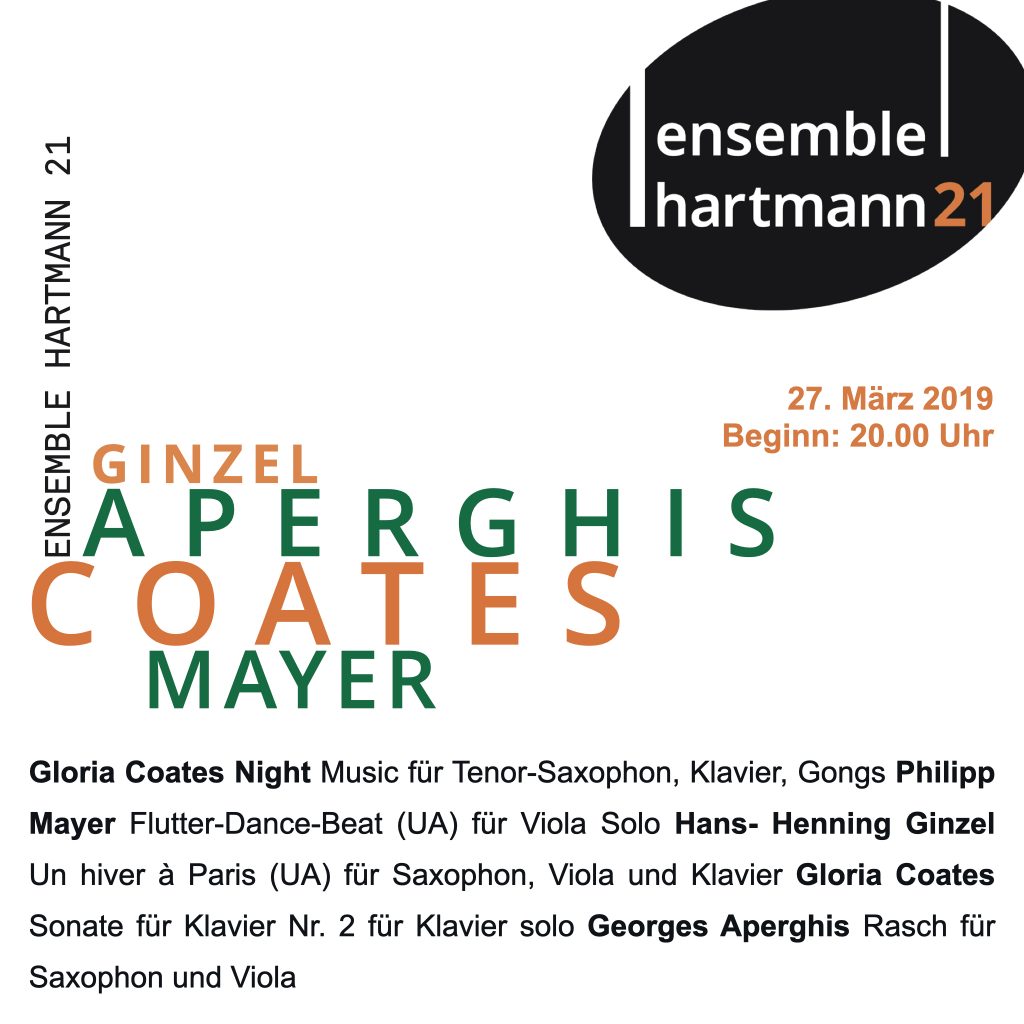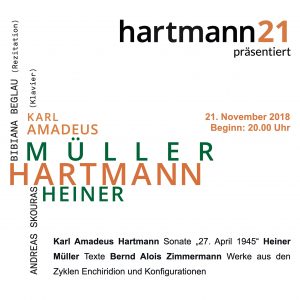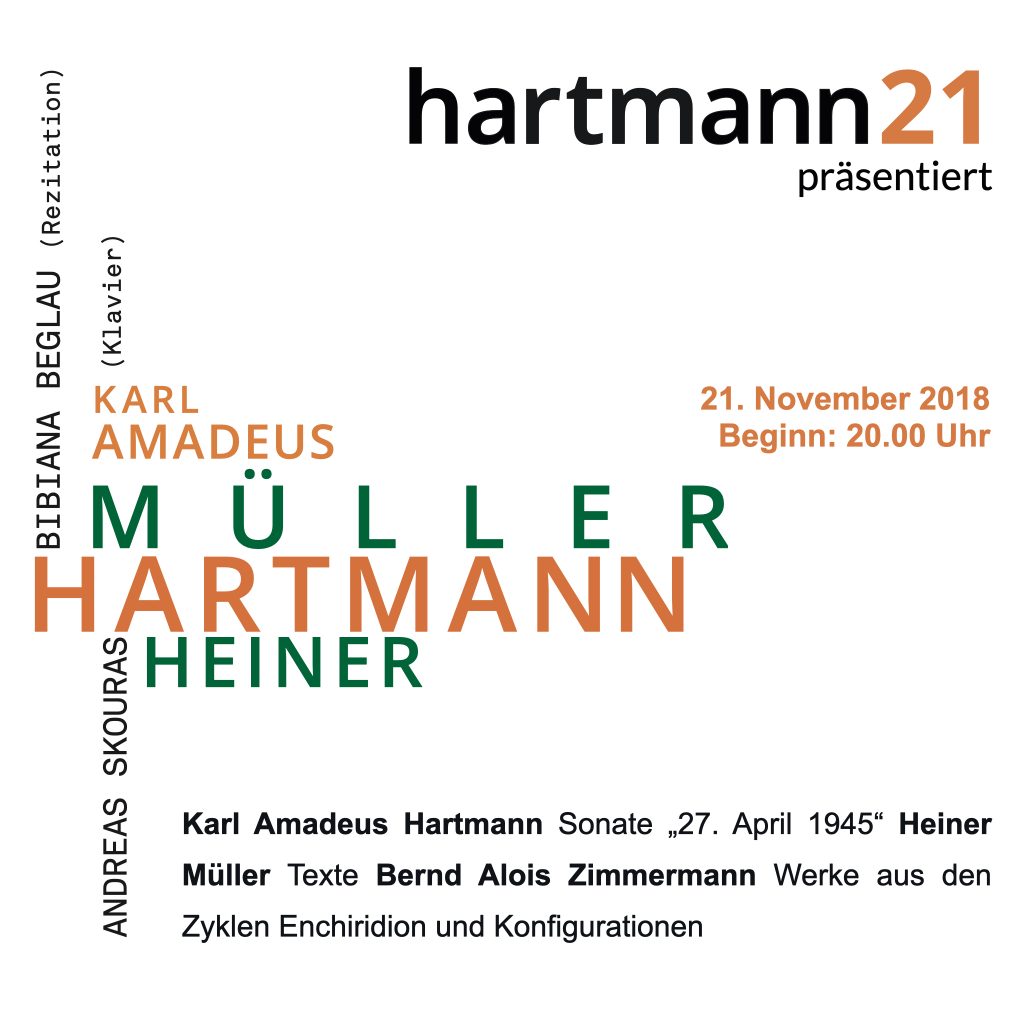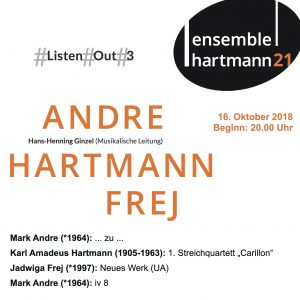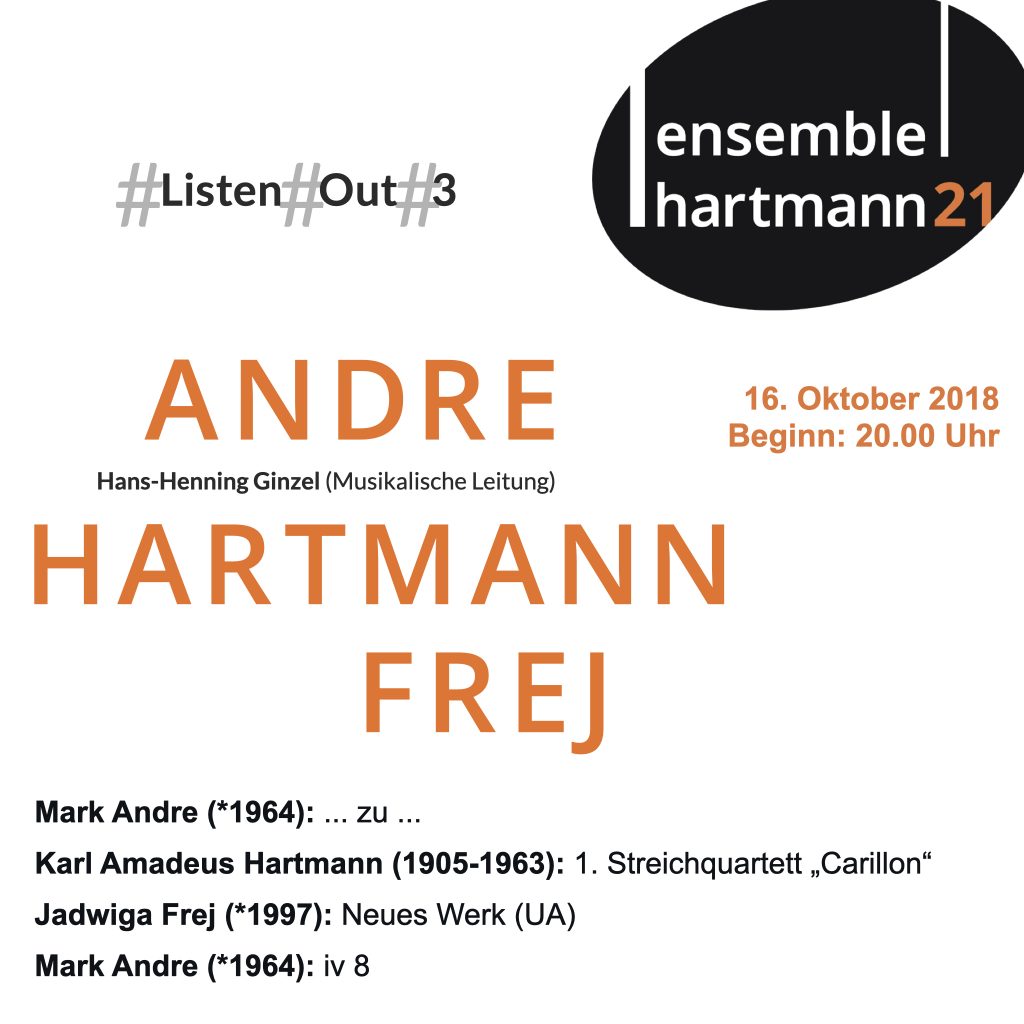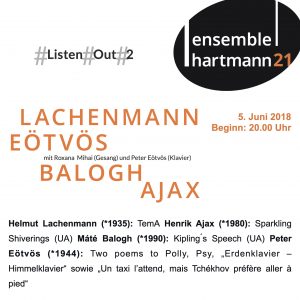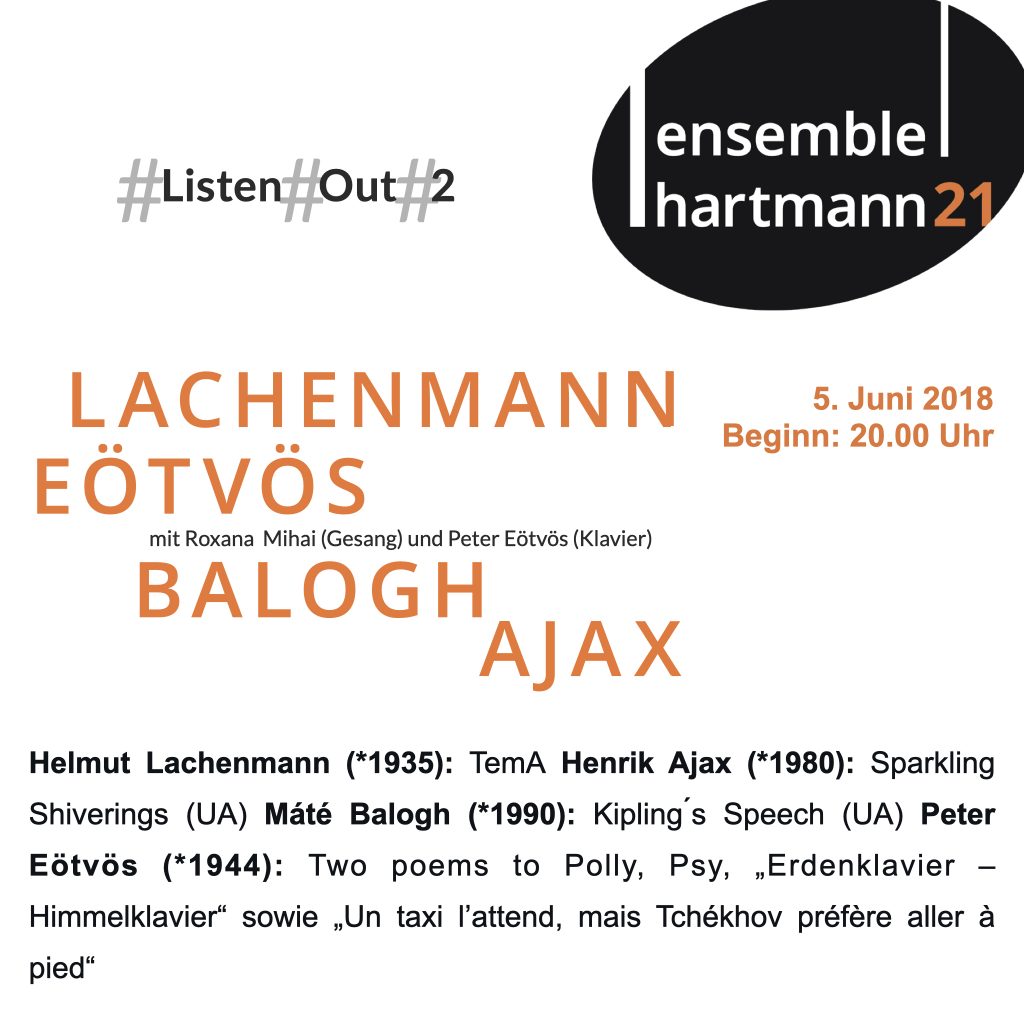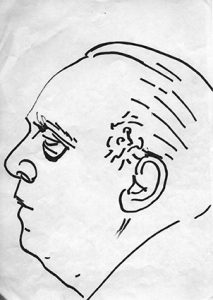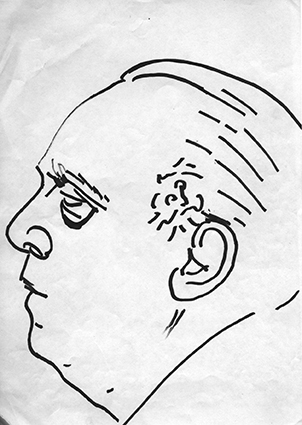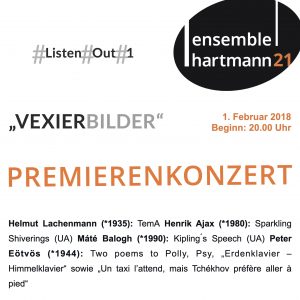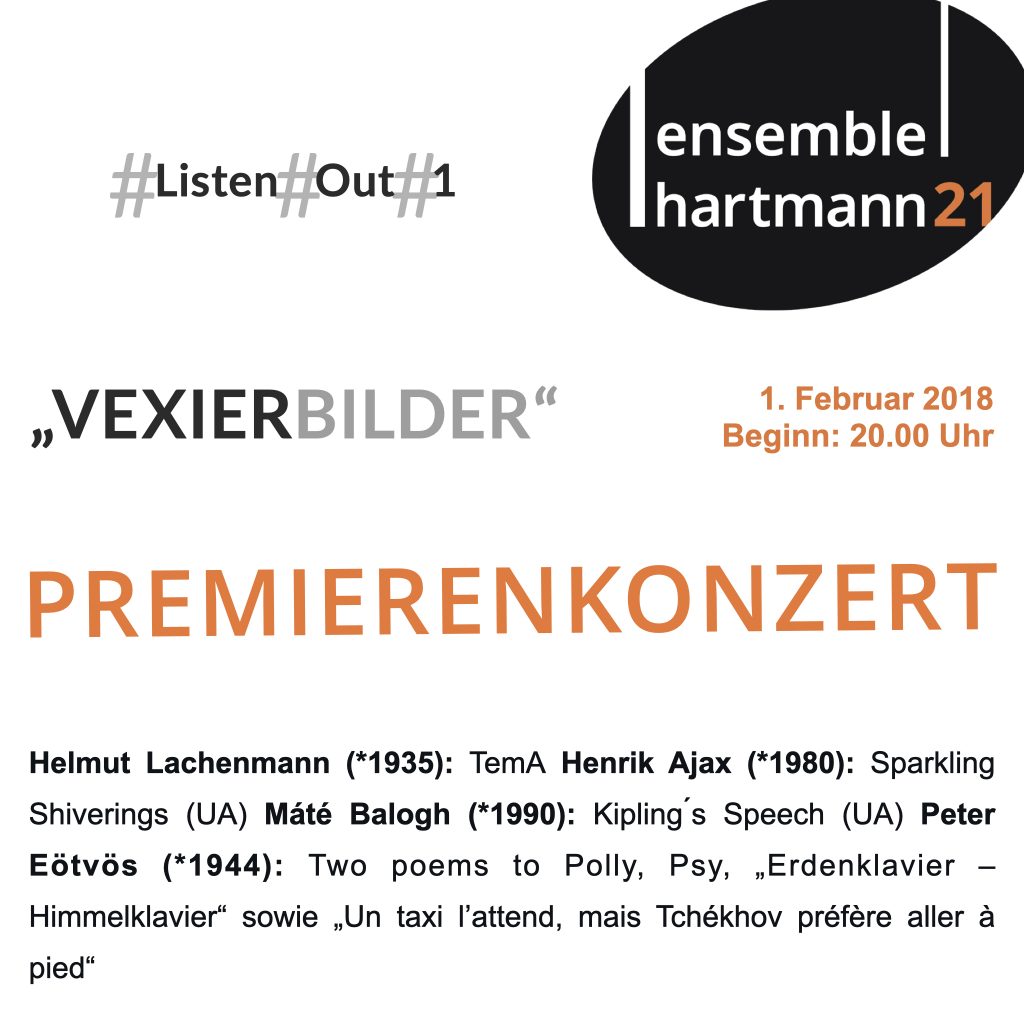With our programme we would like to begin by drawing a bow to the beginnings of the musica viva founded in 1945 by Karl Amadeus Hartmann. With solo works by Pierre Boulez and György Ligeti, two compositions by Hartmann’s closest companions and most incisive figures in 20th century music history form a programmatic bracket around Hartmann’s early First suite for piano. In 1945 the then twenty-year-old Boulez composed his Douze Notations: twelve pieces in twelve bars of twelve notes. More than thirty years later, it was precisely these miniatures that were to serve him as the germ cell for his epoch-making orchestral work of the same name. Aphoristic brevity, unmistakably expressionistic sound intensity and a rigorous serial approach to compositional technique are the defining characteristics that make this work the aesthetic manifesto of the young Pierre Boulez.
Before György Ligeti fled Hungary to the West in 1956 for political and artistic reasons, he composed a whole series of early works in succession to Béla Bartók; among them is the solo sonata for cello, written between 1948 and 1953. Although her two movements still reveal Bartók’s folkloristically influenced “folk tone”, the committee of the Communist Union of Composers considered the work “too modern” and banned its performance.
After Pierre Boulez, Philippe Manoury is probably the figurehead of the French avant-garde par excellence. In recent years, the question of the various forms of musical interaction has increasingly moved into the focus of his work and his writings on music theory. This moment also characterizes his work Ultima, in which new possibilities of playing together among “free” individuals are tested: “This voluntary independence in the behavior of the three instruments was suggested to me by the heterogeneity of their respective natures,” says the composer in the preface to his score.
Finally, our ensemble hartmann21 will adress itself to a new work by the 29-year-old Mexican composer Carlos G. Hernández, who will also enrich our subsequent round of discussions. Similar to Philippe Manoury, in his work 5(233n, Hernández deals with the theme of communication or isolation between individuals in the age of digital media and transfers this to the interaction of the instrumental voices.
An event of the © Karl Amadeus Hartmann-Gesellschaft e. V., sponsored by Bayerisches Staatsministerium für Wissenschaft und Kunst, Kulturreferat der Landeshauptstadt München, LfA Förderbank Bayern and Bezirk Oberbayern.
